Acupuncture for a Healthy Pregnancy
Whether you are experiencing a smooth pregnancy with no major concerns, are dealing with undesirable symptoms or medical conditions, have a history of pregnancy complications, or are planning to conceive in the future, acupuncture is a valuable addition to your health plan.
Acupuncture is safe and effective, even moreso when performed by a Fellow of the American Board of Reproductive Medicine. It can reduce pain, boost mood and energy, strengthen digestion, immunity, and sleep, improve factors contributing to a healthy pregnancy and smooth childbirth, and set you up for a healthy postpartum period.
The traditional Chinese medical understanding of the body during pregnancy has supported healing and wellness in pregnant women for thousands of years. After all of these years of refinement, combined with modern research and scientific knowledge of the body, acupuncture is now commonly recommended by obstetricians, midwives, reproductive endocrinologists, and primary care physicians for a wide variety of reasons during pregnancy.
Acupuncture offers safe and effective adjunctive therapy for:
High blood pressure
Pre-eclampsia
Threatened miscarriage
Bleeding during pregnancy
Placenta previa
Breech presentation
Delayed labor onset
Asthma
Allergies and pregnancy rhinitis
Headache, migraine and dizziness
Musculoskeletal conditions including sciatica, calf cramps, back, neck, hip, pelvic, pubic symphysis and other joint and muscle pain
Vulval varicosities and hemorrhoids
Anxiety and depression
Insomnia
Fatigue
Nausea, heart burn, constipation and other digestive complaints
Skin conditions, including itching and rashes
Birth preparation, including cervical ripening, improving blood flow to uterus, and relaxing tendons and ligaments
Reducing risk of postpartum conditions such as postpartum hemorrhage, depression, and low milk production
Third Trimester
Reduce risk of pre-eclampsia
Reduce risk of post partum hemorrhage
Breech presentation
Childbirth preparation
Hand and foot pain and swelling
Vulval vericosity
Hemorrhoids
Symphysis pubis pain
Stimulate labor
All Trimesters
Allergies
Headache
Musculoskeletal pain
Anxiety, depression
Preparing Your Body For Postpartum
Chinese medical concept of Spleen qi deficiency. This is a common pattern, existing to some degree in most people. It is the pattern that is most responsible for recovery after childbirth, in the sense of the degree to which the body returns to its prior condition in a variety of ways.
Decrease overall deficiency. Pregnancy and childbirth consume a significant amount of a mother’s qi and Blood, resulting in various types of stagnation and accumulation. The many combinations of these deficiencies and stagnation result in the disruption of normal energy flow, potentially leading to issues such as fatigue, pain, emotional imbalances, and slower postpartum recovery. Addressing these imbalances through targeted treatments can help restore vitality, support healing, and promote long-term well-being
FREQUENTLY ASKED QUESTIONS
How often should I get acupuncture during pregnancy?
The majority of acupuncturists whom specialize in pregnancy care recommend the following treatment frequency during pregnancy:
First trimester: weekly
Second and third trimesters, until week 35: monthly
Week 36 - childbirth: weekly or more
If there are symptoms or other medical concerns, increased frequency may be recommended and beneficial
How do I know acupuncture is safe during pregnancy?
Research in this area is reassuring that there are no reported increased rates of adverse events when treating pregnancy related conditions with acupuncture. A 2014 systematic review on 105 studies on adverse events associated with acupuncture during pregnancy found that the total incidence of adverse events was 1.9%. The vast majority of these were mild - mainly pain from needle insertion and bleeding. Other adverse events were consistently found to be highly unlikely to have been caused by acupuncture treatment.
Dr. Stephanie holds a Fellowship of the American Board of Oriental Reproductive Medicine (FABORM), which requires advanced knowledge of integrative evidence-based reproductive care. It involves passing a rigorous advanced certification exam, completion of at least 45 hours of approved continuing education in integrative reproductive care, and ongoing continuing education.
Here are a few citations on the effectiveness and safety of acupuncture during pregnancy:
Park, J., Sohn, Y., White, A. R., & Lee, H. (2014). The safety of acupuncture during pregnancy: a systematic review. Acupuncture in Medicine, 32(3), 257-266. https://doi.org/10.1136/acupmed-2013-010480
Clarkson, C. E., O’Mahony, D., & Jones, D. E. (2015). Adverse event reporting in studies of penetrating acupuncture during pregnancy: a systematic review. Acta Obstetricia et Gynecologica Scandinavica, 94(5), 453–464. https://doi.org/10.1111/aogs.12587
The American College of Obstetricians and Gynecologists (ACOG). (n.d.). Acupuncture is considered safe for treating pregnancy-related symptoms like nausea, pain, and stress when performed by a trained practitioner. Retrieved from The Bump: https://www.thebump.com
Goodwin, K. (2023). The safety of acupuncture in pregnancy. Hearth Acupuncture. Retrieved from https://hearthacupuncture.com/safety-of-acupuncture-in-pregnancy/
